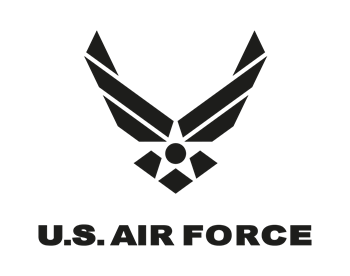Training Types
Enlisted Professional Military Education
Technical Training
Basic Military Training
Upgrade Training
Leadership Training
As you progress through your career, you'll also share ideas, experiences, and work together with your fellow Airmen to achieve various educational objectives through the Thomas N. Barnes Center for Enlisted Education. We've included some of the most sought-after leadership training programs below. Click on any to learn more:
Airman Leadership School
Noncommissioned Officer (NCO) Academy
Air Force Senior Noncommissioned Officer Academy (AFNCOA)
Example Resume
Based on the experience gained from Basic Military Training, Technical Training, Upgrade Training, and Leadership Training, you will become a true Airman with a well-rounded career trajectory. Importantly, you will also look good "on paper". As an example, we've included a sample of what your resume could look like after an enlistment:
 |
Air Force Specialty CodeAn Air Force Specialty Code "AFSC" is the job that an Airman performs while serving. You will gain valuable experience during this time, preparing you for a career in the workforce. Here's some information on the AFSC currently selected: AFSC: AFSC Description: |
||
|---|---|---|---|
 |
EducationAssociates of Applied Science in . The major program includes technical and on-the-job education, leadership/management and military studies, physical education, general education (communications, mathematics, social science, and humanities), as well as program electives for you to choose from such as natural science courses or a foreign language. |
||
 |
Training and CredentialsIn addition to your degree, you will receive additional on-the-job (or "occupational") training that will result in your ability to gain certifications and credentials to prove to future employers that you have the skills necessary to succeed in a variety careers in the civilian job market. You will gain some during your time in the Air Force, but your options also open with civilian credentials that you can target as you understand what path you want to take your career. We have provided samples below. Available Credentials*: *Note: Credentials earned in the Air Force are directly applicable to civilian careers. |
||
 |
ExperienceOne of the clearest ways the Air Force helps you distinguish yourself from your civilian counterparts is helping you gain higher experience levels from the moment you enter the workforce. "Experience" can be divided into two categories: Technical and Leadership.
|
